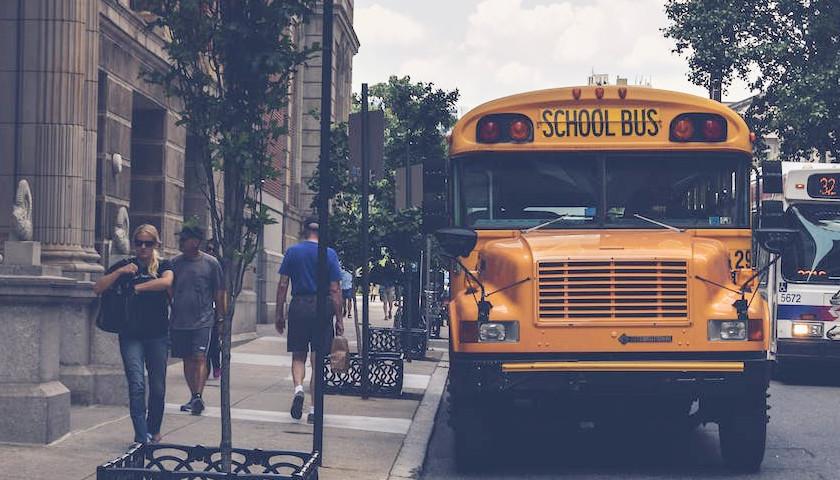by Scott McClallen
School districts in Detroit, Lansing and Pontiac will each receive $5.9 million in federal funding to buy 15 clean-powered school buses apiece.
The funding flows from President Biden’s Bipartisan Infrastructure Law’s Clean School Bus Program grants.
Funding through third-party multistate grantees First Student Inc. and Highland CSB 1 will help buy electric buses in five additional Michigan public school systems – 10 buses in Flint; five in Redford Union No. 1 near Detroit; and two each in Mason County, Brimley, and the West Shore Educational Service District in Ludington.
The U.S. Environmental Protection Agency announced the awards Jan. 8 as part of the agency’s first CSBP Grants Competition.
“The Michigan Infrastructure Office applauds Detroit, Lansing, and Pontiac for their Clean School Bus Program wins. These federal dollars will purchase new, electric school busses for these school districts, providing a safer and cleaner ride to school for students,” said Michigan Chief Infrastructure Officer Zachary Kolodin. “A single electric bus can eliminate 1,690 tons of CO2 over its lifespan, the equivalent of taking 27 cars off the road. These busses will save schools money on maintenance costs while meaningfully advancing the state’s climate goals.”
Only some districts have and use EV school buses daily because of wait time for delivery or infrastructure installation.
For example, Zeeland Public Schools have logged more than 145,000 miles over its four electric vehicle school buses since 2021.
Michigan Department of Environment, Great Lakes, and Energy Director Phil Roos said Michigan only had 17 electric school buses before the new infrastructure law.
“This grant program has greatly accelerated Michigan’s transition to clean school buses, helping implement Governor Gretchen Whitmer’s MI Healthy Climate Plan while lowering costs for schools; keeping Michigan on the leading edge of advanced mobility; and, most importantly, protecting the state’s most precious resources, our children, from harmful air pollution.”
The transportation sector accounts for almost 28% of Michigan’s total greenhouse gas emissions. Most of those emissions come from combustion of gasoline and diesel fuel, including by school buses. Reducing GHG emissions from transportation is vital to meeting the MI Healthy Climate Plan goal of making Michigan 100% carbon neutral by 2050.
Nearly 17,000 school buses transport more than 800,000 Michigan students each school year.
In 2019, EGLE’s Fuel Transformation Program awarded a $4.2 million grant toward the purchase of the first 17 electric school buses and charging stations in Michigan for seven school districts.
In November 2022, the EPA invested $54 million toward 138 new electric school buses and infrastructure for 25 Michigan school districts.
Michigan’s record $82 billion budget for 2024 included $125 million to help school systems transition to clean-energy buses.
– – –
Scott McClallen is a staff writer covering Michigan and Minnesota for The Center Square. A graduate of Hillsdale College, his work has appeared on Forbes.com and FEE.org. Previously, he worked as a financial analyst at Pepsi. In 2021, he published a book on technology and privacy. He co-hosts the weekly Michigan in Focus podcast.





